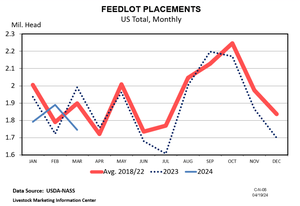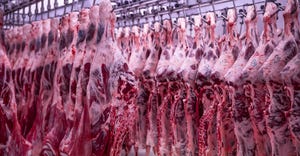Several articles came out this week focusing on Dudley Butler and his role in the whole GIPSA rule debate. Admittedly, by simply being in his position as head of GIPSA and a political appointee, his agenda and background are fair game.

Several articles came out this week focusing on Dudley Butler and his role in the whole GIPSA rule debate. Admittedly, by simply being in his position as head of GIPSA and a political appointee, his agenda and background are fair game. Plus, his open campaigning for the rule and unprecedented actions virtually assured his integrity and motivation would be attacked.
I’m not sure that his co-founding of a group like the Organization for Competitive Markets, his background as a plaintiff lawyer, and his public comments about his desires to make the GIPSA rule a "litigator’s dream" are anything new. Butler is an ideologue, an activist with an agenda, and he made it known from day one that his goal was to reshape the livestock industry before returning to his practice to litigate those changes.
In fact, these things were so well known that, almost immediately following his appointment, cattlemen’s groups hired their own lawyers to begin to prepare for the legal battles that were likely to to decide the fate of GIPSA and value-based marketing.
But the real story isn’t about the man. It’s about his appointment, and how a political appointee can defy the wishes of Congress and push such dramatic changes to an industry’s marketing environment (whether you agree with them or not), simply through regulatory fiat.
This isn’t something incredibly new. We’ve seen it occur in other agencies – where a zealot commits him or herself to implementing their personal views regardless of what elected officials, statutory restrictions or affected parties think. “I know I’m right and I’m going to make it happen – process be damned.”
This scenario highlights the amazing power of government to affect the size, scope and competitiveness of an industry through regulation. It also underscores why it’s so important that bureaucrats be held accountable to elected officials and voters. Unchecked and unbridled power is a destructive force.
I’d probably argue that no person should ever be given that type of power over another, but if that kind of power is going to be concentrated in one person, we not only should know where he’s coming from but have the means to hold him accountable. Certainly the courts will end up being an arbitrator in these situations, but it becomes a very lengthy checks-and-balances process. Regulatory agencies were never intended to make laws; the process is fundamentally flawed.
About the Author(s)
You May Also Like





